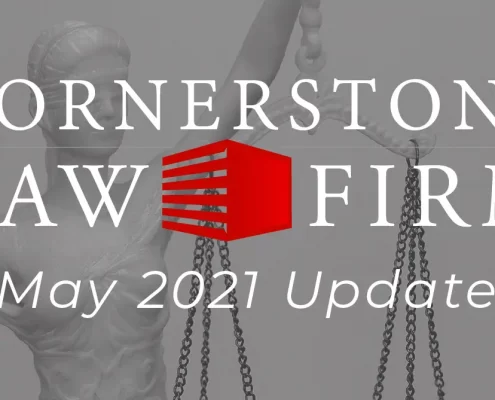
Real Estate Closings: The Complete Checklist
PropertyBuying and selling homes privately can save you a lot of money in realtor fees and other costs, but it often means you must handle the closing on your own. If you plan to have a private real estate closing without the help of a title company…

When a Contractor Doesn’t Finish the Job
Berks County, Construction, Contracts, PropertyCornerstone Law Firm offered a legal tip to Redfin on how to handle things when a contractor doesn't finish a home renovation project.
"If you find yourself in a situation where a contractor has not performed as agreed upon, you have legal…

May 2021 Update
Berks County, Civil Law, Contracts, Litigation, Personal Injury, Property, UpdatesMay 2021 has been filled with trials and advanced litigation for the attorneys of Cornerstone Law Firm. On the civil side, attorney Joel Ready spent time litigating a partnership dispute in Lehigh County court, giving advice to several businesses…

Right of Partition
Property
When you own land with someone else and you stop getting along with that person, what can you do? Especially when someone owns a large piece of investment property with someone else, it can be very difficult to figure out how to work with someone…

Cornerstone Law Firm in the Greater Reading Merchandiser
Business Law, Landlord/Tenant, Lawsuit, Personal Injury, Property, Updates, Wills
Cornerstone Law Firm is honored to serve the Berks County, Pennsylvania and beyond. We're happy to solve your legal problems, even through the uncertainty and stress of the current coronavirus (COVID-19).
In this month's Greater Reading…

Time to File a Property Tax Appeal?
PropertyWise management of real estate requires owners to periodically check their tax assessments to ensure they are being assessed correctly. You pay taxes based on the “assessed” value of your home, so ensuring correct assessment can lower your…
